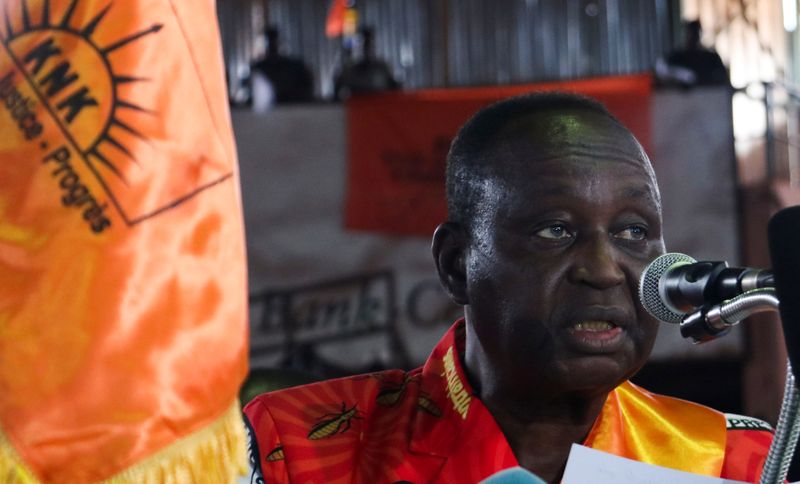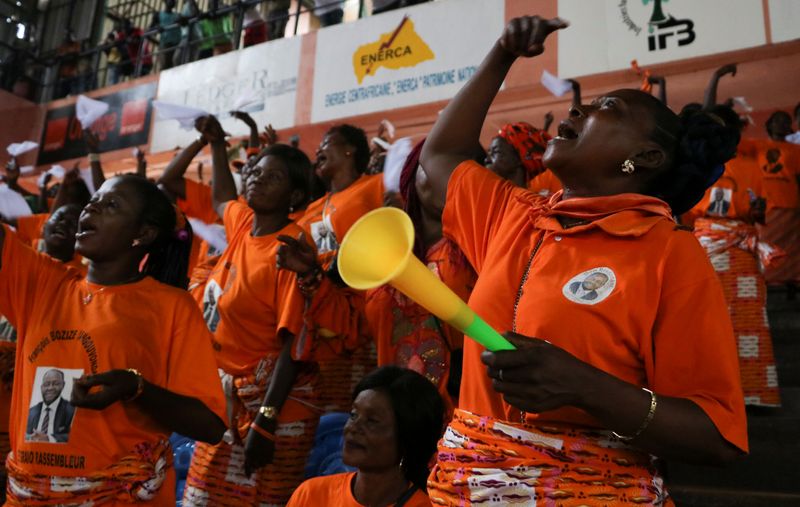BANGUI (Reuters) – Deposed former Central African Republic President Francois Bozize announced on Saturday his candidacy for the December presidential vote despite being under U.N. sanctions and subject to an arrest warrant for alleged crimes against humanity.
He made the expected announcement in a speech to a large crowd of supporters at a congress of his party Kwa na Kwa (Work, Nothing But Work) in the capital Bangui.
The 73-year-old former general and army chief was overthrown in a 2013 rebellion by a coalition of mainly Muslim rebels from the north, plunging the majority Christian nation into a violent civil war and an acute and ongoing humanitarian crisis.
“The country needs a man of experience, peace and conviction,” Bozize said in the speech that criticised the tenure of current president, Faustin-Archange Touadera.
Bozize first took power after a 2003 coup and served 10 years as president, before fleeing the country in 2013. The new administration sought his arrest for alleged crimes against humanity and incitement to genocide, but has not moved to detain him since he returned from exile late last year.
It is not clear how the warrant or foreign sanctions will affect his candidacy. In January, Bozize said he would ask the United Nations to lift the sanctions imposed in 2014 over his alleged support for ‘anti-balaka’ Christian militias.
Touadera, who was elected in 2016, is expected to seek a second term in the election but has not yet confirmed he will run. The first round of the race is scheduled for December 27.
Most of the diamond-rich country remains beyond government control as rival militias continue to clash. The violence has forced more than 1.5 million people to flee their homes.
(Editing by Alessandra Prentice and Christina Fincher)


























